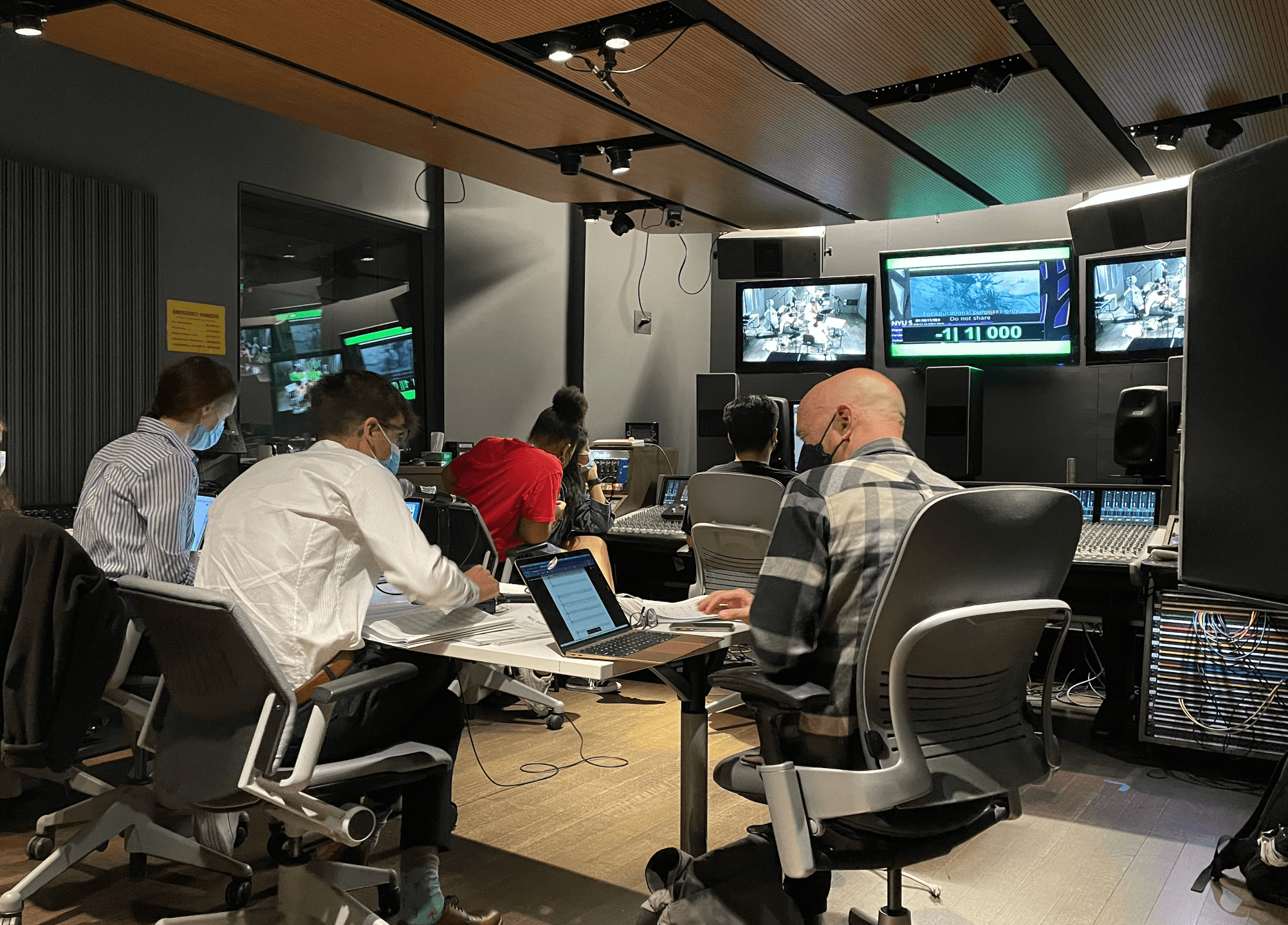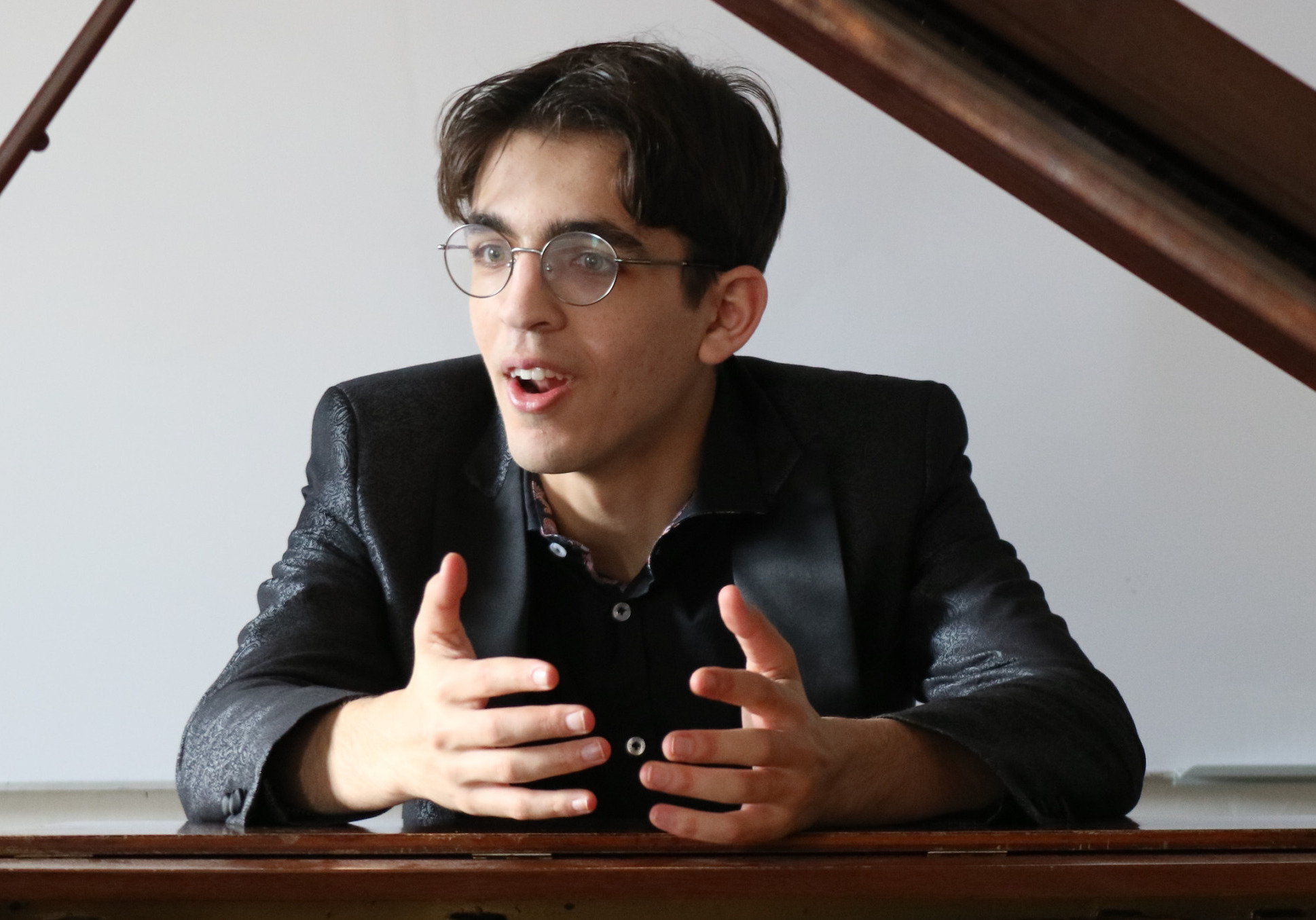We caught up with the brilliant and insightful Avishai Dayanim a few weeks ago and have shared our conversation below.
AviShai, thanks for taking the time to share your stories with us today How did you learn to do what you do? Knowing what you know now, what could you have done to speed up your learning process? What skills do you think were most essential? What obstacles stood in the way of learning more?
As a composer, and specifically a composer for media, I have watched more than my fair share of YouTube tutorials, read countless books and guides, and have been fortunate to learn from incredible professors, faculty, and peers at several NYU Screen Scoring Workshops and as a Music for New Media Program undergraduate student at The Peabody Institute. On top of that, I have had incredible opportunities to experience the industry firsthand through various internships with remarkable composers and a leading music software company. Many of these opportunities can be hard to come by, especially for someone who is starting their media scoring journey. That is why I have found that simply consuming media – that is, listening to music, watching films and TV shows, and playing video games can be one of the easiest and most accessible ways to learn. Immersing myself in media has taught me incredible lessons that anyone can benefit from.
If you want to succeed in an art form, you have to truly appreciate that art form. It is easy to get wrapped up in the technicalities of composition or production, but the real learning comes from engaging yourself with the medium. For me, this often means sitting down with a film, TV show, or game, not just to enjoy it as entertainment, but to understand it on a deeper level.
It can be hard, at times, to watch a film and focus on the music through an analytical lens. To me, movies have always been about immersing myself in the experience—letting the film wash over me. Yet, when I started paying close attention to the music, I noticed things I had previously taken for granted. By stepping back and analyzing how the arrangement works with the cinematography, how themes develop along with the plot, or how the music foreshadows certain events, I began to see media composition in a new light. I realized I was learning both directly and indirectly from the composer of the medium I was interacting with.
Through this process of immersion and analysis, I was able to grasp the intricacies of media composition that can’t always be taught through a tutorial or book. The way music breathes life into a scene, how it adds emotional weight, or even how silence can sometimes be more impactful than sound—these are lessons learned only by watching and listening carefully.
In retrospect, I believe I could have sped up my learning process by engaging more actively with the media I was consuming early on. Instead of passively enjoying the film or soundtrack, I could have dissected more pieces, studied more scores, and applied that knowledge directly into my own work.
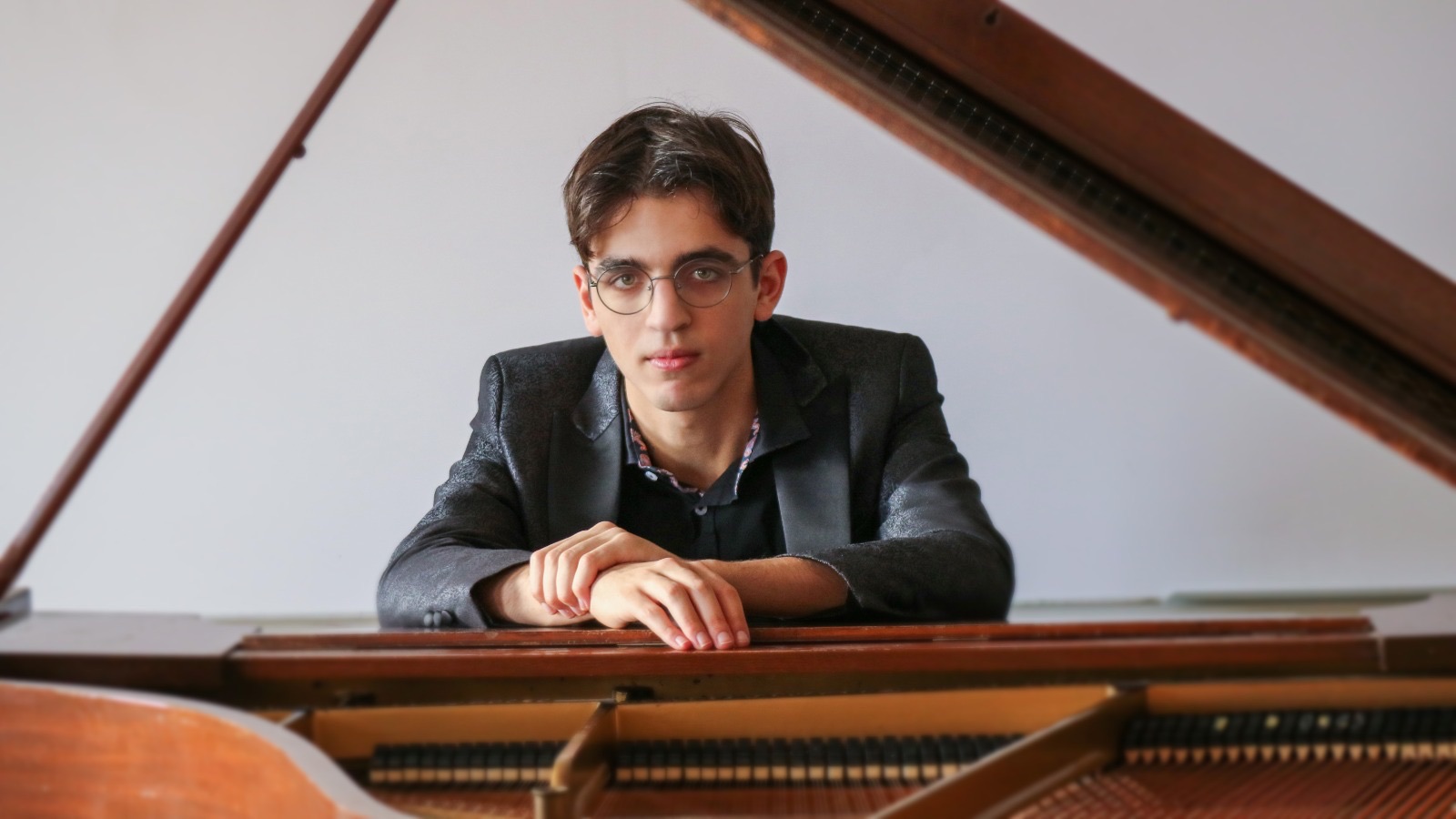
As always, we appreciate you sharing your insights and we’ve got a few more questions for you, but before we get to all of that can you take a minute to introduce yourself and give our readers some of your back background and context?
Since I was young, I have always loved both music and film. About seven years ago, I realized that these two passions overlap in a unique way through the art of film composition. As I delved deeper into this field, my interests expanded to include not just films, but also TV shows, video games, theater productions, and more. The craft of telling a story through music has become an essential part of who I am and what I do.
I primarily see myself as a musical translator. For almost any form of visual media, there exists a chief visionary—whether it is a director, showrunner, or lead developer—who is responsible for bringing together all the elements that create the final work of art or entertainment. While every element, from visuals to sound design, has its own unique set of challenges and complexities, music is often one of the hardest to describe or define, especially for someone without a musical background. That’s where I come in.
My job is to understand what a director or creative lead wants, often through words that may not directly relate to music at all, and translate their vision into a musical language. Music has the power to add an extra layer of narrative or emotion to a project, and it is my goal to ensure that the music not only complements the visual elements but also enhances the overall storytelling experience.
So, when people ask what a composer for media does, my answer is simple: I translate a vision into a musical product. Whether it is creating the perfect score for a film, developing musical themes for a video game, or enhancing the emotional impact of a theater production, my work is about bringing a creative vision to life through music.
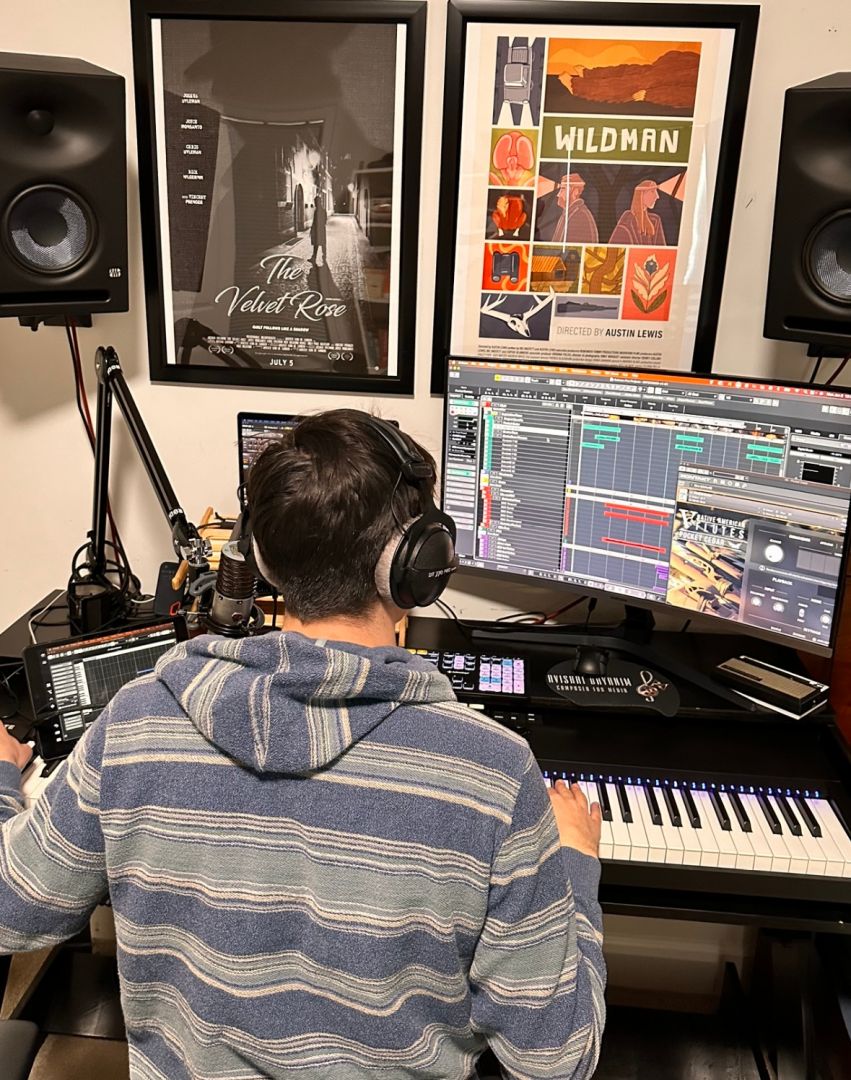
For you, what’s the most rewarding aspect of being a creative?
Some of my most rewarding experiences as a composer have been when I am collaborating with other creatives who are deeply passionate about the project. There’s a special energy that comes from working with a director or creative team that is not only connected to their work but is also open to challenging their creation in ways that push the boundaries of what we are trying to achieve together.
For example, working with a director who is fully invested in their short film and willing to explore how my music can elevate or add new dimensions to their story is incredibly rewarding. I have had projects where I send a single take of music, and the director is beyond satisfied, and while those jobs tend to be easier and quicker, they don’t have the same kind of creative fulfillment.
There is something uniquely rewarding about having my work challenged and revised, going through a process of iteration, and then realizing that the final result is so much more than what either of us originally envisioned. Those revisions often uncover layers of emotion or narrative depth that were not present at first, and the collaborative process becomes a discovery in itself. It is in those moments, when the music and the story are truly working together in harmony, that I feel the greatest sense of reward as an artist.
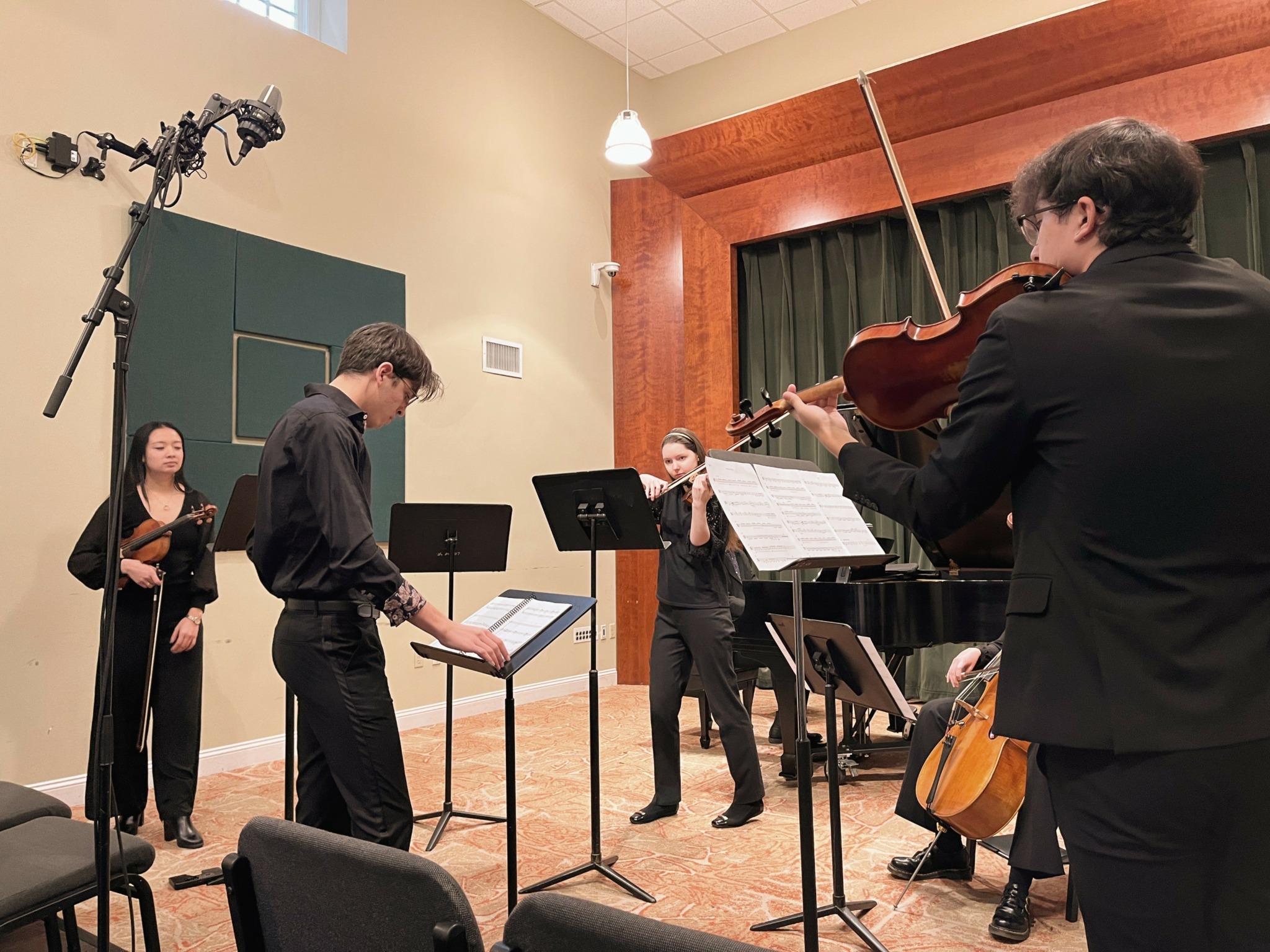
What do you think is the goal or mission that drives your creative journey?
When I was much younger, I remember asking my piano teacher to learn pieces of music from some of my favorite films. Finding a piece of music that I could connect to, and spending the time learning and practicing the piece in the hopes of being able to recreate the emotional connection I experienced while watching the film, sparked something inside of me, and as naive as it may sound, it is that very feeling that drives my creative journey today. I want my music to have that same kind of impact on people.
For a composer, knowing that your music has resonated with someone so deeply that they feel compelled to seek it out, learn it, and engage with it on a personal level is incredibly powerful. It is more than just writing a beautiful melody or crafting an emotional score; it is about creating something that connects with others on a profound level. That connection is what drives me to keep pushing forward in my work. It is what inspires me to compose, and it is what gives meaning to every project I take on.
Contact Info:
- Website: https://avishaidayanimmusic.com
- Instagram: https://www.instagram.com/avishai_dayanim_music/?hl=en
- Linkedin: https://www.linkedin.com/in/avishai-dayanim-06025b224/
- Youtube: https://www.youtube.com/channel/UCWjfS8FvxOnzdil7Ar0jSJA
